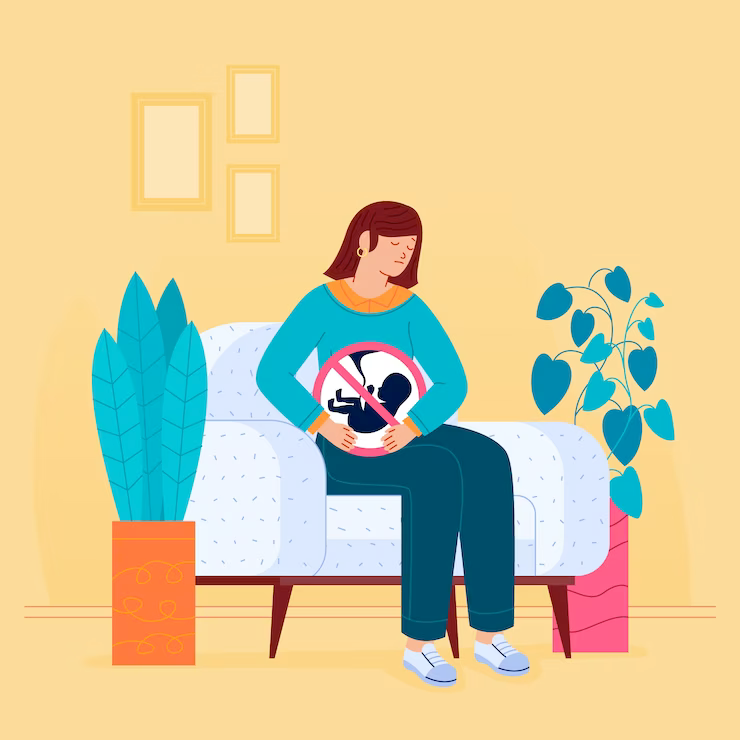Preventive Healthcare
Ectopic Pregnancy: Symptoms, Causes and Treatment
1795 Views
0

Pregnancy is a life-changing experience for a woman. It brings with it immense joy and hope. However, the pregnancy journey is very different for each woman. Seeing the lines appear on a home pregnancy test kit can be extremely exciting for a couple. Yet, sometimes, a doctor’s visit brings some disappointing news. One such diagnosis is that of an ectopic pregnancy.
Ectopic pregnancies are when a fertilised egg implants in the fallopian tubes on its way to the uterus. This potentially serious condition puts the mother’s life at risk. The uterus is the usual site for a healthy pregnancy to develop. But, in ectopic pregnancies, the fertilised egg implants in other locations, such as the fallopian tubes, ovaries, cervix, or abdominal cavity.
Unfortunately, since these sites are not designed to support the growth of a foetus, it leads to the non-viability of the embryo and causes various complications and health risks for the woman.
Ectopic pregnancies are relatively rare, occurring in about 1-2% of all pregnancies, but they require prompt medical attention as they can result in significant health consequences if left untreated.
Understanding the symptoms, causes, and available treatments for ectopic pregnancy is crucial for early detection, intervention, and optimal care for affected women.
What are the causes of an ectopic pregnancy?
In most ectopic pregnancies, there is usually a slowdown or block in the movement of the egg down the fallopian tube, which causes an ectopic pregnancy. This blockage may occur due to:
- Presence of scar tissue or adhesions due to inflammatory conditions like endometriosis or a previous pelvic surgery
- Fallopian tube damage due to STIs
- Irregularly-shaped fallopian tube
- Presence of an irregular growth blocking the fallopian tube
What Increases the Risk of Ectopic Pregnancy?
If you are concerned or worried about your risk for an ectopic pregnancy, you are surely not alone! Here are some factors that may increase your risk for an ectopic pregnancy:
· Previous personal history of ectopic pregnancy
· History of fallopian tube surgery
· Abdominal or pelvic surgery in the past
· Few sexually transmitted infections
· Pelvic Inflammatory Disease (PID)
· Endometriosis
A few other factors that may increase your risk for ectopic pregnancy include:
· Smoking
· Age over 35 years
· Infertility and use of assisted reproductive technologies like IVF
Common Symptoms of Ectopic Pregnancy
An ectopic pregnancy usually doesn’t cause any symptoms and is most often detected during a pregnancy scan. If you do have symptoms, they usually show up between weeks 4 and 12 of your pregnancy.
A few ectopic pregnancy symptoms include:
- A missed period and other signs of a pregnancy
- Pain in the lower abdomen or pelvic region (lower part of your tummy)
- Vaginal bleeding or a brownish-watery discharge
- Feeling weak or dizzy
If the fallopian tube ruptures due to the ectopic pregnancy, the symptoms may be more severe and cause additional symptoms like:
- Fainting
- Low blood pressure
- Pain in the shoulders
- Pain or discomfort while urinating or pooping
- If the tubes burst, you may feel a sharp and sudden pain in the lower abdominal region.
Ectopic Pregnancy Treatment
An ectopic pregnancy is a medical emergency and must be addressed immediately. This is because only the uterus, which has the ability to stretch, can grow the foetus. Any other structure, like the fallopian tubes, that house the ectopic pregnancy can burst, leading to life-threatening internal bleeding.
Ectopic pregnancy treatment includes:
- Medication:
If the ectopic pregnancy is small, unruptured, and the woman is stable, a medication called methotrexate may be administered. Methotrexate stops the growth of the pregnancy and allows the body to absorb it over time. Regular monitoring through blood tests and ultrasounds is necessary to ensure the ectopic pregnancy treatment is successful.
- Surgery:
Surgery is often required in cases where the ectopic pregnancy has ruptured, the woman is experiencing severe symptoms, or if medical management is not appropriate or unsuccessful.
It is important to know that an ectopic pregnancy cannot be prevented. It depends upon the woman's age, if she has already had children, the cause of her previous ectopic pregnancy and the overall health of her fallopian tubes.
However, you can reduce its risk by following healthy lifestyle habits like avoiding smoking, maintaining a healthy weight and preventing sexually transmitted infections.
If you are worried, speak to your healthcare provider about the same before trying to get pregnant.
In a nutshell
Though ectopic pregnancies are rare, they are a serious and potentially life-threatening condition that requires immediate medical attention. Early detection, accurate diagnosis, and appropriate management are essential for the well-being of the woman affected.
Timely treatment can help prevent complications and preserve future fertility. Women must know the symptoms, risk factors, and the importance of seeking medical care if ectopic pregnancy is suspected. Through advancements in medical technology and the expertise of healthcare professionals, the management of ectopic pregnancy continues to improve, offering hope and better outcomes for affected women.
If you need to undergo diagnostic tests for pregnancy or any other associated complication, you can trust Metropolis Labs for the same! We use advanced technology, tools, and materials and provide accurate test results. We also offer a range of TruHealth packages for men and women of all ages. Book your test with us now!
























